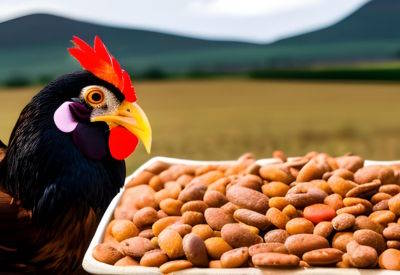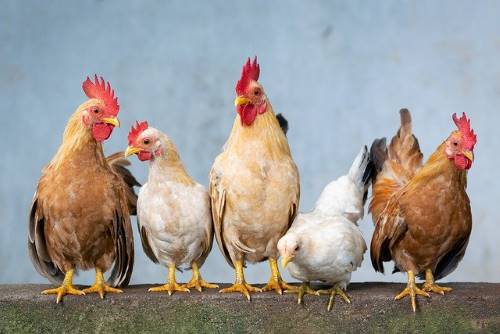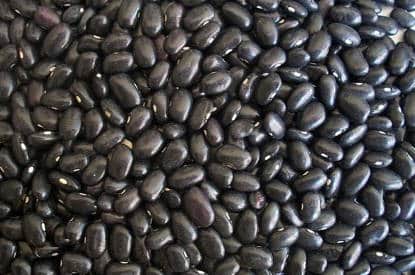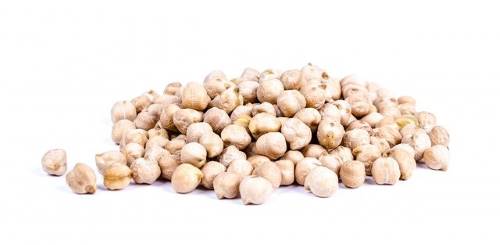Have you ever found yourself wondering, “Can chickens eat beans?” As a fellow chicken owner, I’ve often asked myself the same question. Beans are a staple in many of our diets, and it’s only natural to consider whether these nutritious legumes could also be a valuable addition to our feathered friends’ meals. This comprehensive guide will explore the world of beans and how they can fit into your chickens’ diet.
Like many of you, I take pride in providing the best care for my chickens, including ensuring their meals are nutritious and varied. It’s essential to understand the benefits and risks associated with feeding beans to chickens and how to prepare and serve them safely. By doing so, we can ensure our chickens are happy, healthy, and well-fed.
In the following article, we’ll dive into the nutritional benefits of beans, the types of beans that are safe for chickens to eat, and those that should be avoided. We’ll also discuss properly preparing beans for your chickens and share some ideas for mixing beans with other feed items. By the end of this article, you’ll be armed with the knowledge needed to confidently include beans as part of your chickens’ balanced diet. So, let’s get started!

Can chickens eat beans?
As a chicken owner, you know how important it is to provide your flock with a well-balanced diet. Chickens need a variety of nutrients to stay healthy, and beans can be an excellent source of protein, vitamins, and minerals.
However, knowing the potential risks and proper ways to prepare beans for your chickens is important. This comprehensive guide will help you navigate the world of beans for your feathered friends.
[ChickenAffiliate]
Nutritional Benefits of Beans for Chickens
Beans are a nutrient-dense food, which means they pack a lot of nutrition into a small package. Here’s a rundown of some of the nutrients beans can provide for your chickens.
Protein content
Beans are an excellent protein source, essential for maintaining strong muscles, feathers, and overall health. Some beans have a higher protein content than certain grains and seeds commonly fed to chickens.
Vitamins and minerals
Beans are a good source of essential vitamins and minerals, including B vitamins, iron, and potassium. These nutrients are necessary for proper growth, egg production, and overall health.
Fiber and carbohydrates
Beans contain both soluble and insoluble fiber, aiding digestion and keeping your chickens feeling full. Additionally, beans are a source of complex carbohydrates, providing a slow-release energy source that can help keep your flock energized throughout the day.
Types of Beans Chickens Can Safely Eat

Not all beans are created equal when it comes to feeding your chickens. Some beans can be toxic if fed raw or undercooked, while others are perfectly safe. Here are some types of beans that are safe for your chickens.
Cooked beans
Cooking beans properly can neutralize any harmful compounds and make them safe for your chickens. Some examples of cooked beans that are safe for chickens include:
- Kidney beans: These red beans are a good source of protein, fiber, and essential nutrients.
- Pinto beans: Another popular bean variety, pintos are packed with protein and can be a great addition to your chickens’ diet.
- Lima beans: Also known as butter beans, these legumes are high in protein and other nutrients, making them a suitable choice for your flock.
Sprouted beans
Sprouting beans makes them easier to digest and increases their nutritional value. Here are some beans that can be sprouted and safely fed to your chickens:
- Mung beans: These small, green beans are easy to sprout and are rich in protein, vitamins, and minerals.
- Lentils: Another excellent choice for sprouting, lentils are packed with nutrients and can be easily incorporated into your chickens’ diet.
Beans to Avoid Feeding Chickens
While some beans are safe for chickens, others pose serious health risks. Here’s a list of beans and bean preparations to avoid.
Raw or undercooked beans
Feeding your chickens raw or undercooked beans can be dangerous due to the presence of a toxic compound called phytohaemagglutinin, which can cause digestive upset and even death in large enough quantities. Other harmful compounds in raw beans can interfere with nutrient absorption and cause health issues. Always cook beans thoroughly before feeding them to your chickens.
Canned beans
While opening a can of beans and tossing it to your chickens may be tempting, this isn’t the best idea. Canned beans often contain high levels of sodium and preservatives, which can harm your chickens. Instead, opt for dried beans that you can cook and prepare yourself.
Preparing and Serving Beans to Chickens

Now that you know which beans are safe for your chickens, you must learn how to prepare and serve them properly. Here are some tips for getting beans ready for your flock.
Cooking methods
Cooking beans thoroughly is crucial to eliminate harmful compounds and make them safe for your chickens. Here are two methods for cooking beans:
- Boiling: Rinse the beans and then soak them in water for at least 8 hours or overnight. Drain and rinse again before placing them in a pot with fresh water. Bring the water to a boil, reduce the heat and let the beans simmer until they’re soft and fully cooked. This can take anywhere from 45 minutes to 2 hours, depending on the type of bean.
- Steaming: If you prefer to steam your beans, start by rinsing and soaking them as described above. Then, place the beans in a steamer basket over boiling water, cover, and steam until tender. This method can take longer than boiling, but it’s another effective way to cook beans for your chickens.
Sprouting beans
Sprouting beans is a simple process that can be done at home. To sprout beans:
- Rinse and soak them in water for 8-12 hours.
- Drain and rinse the beans again, then place them in a jar or sprouting container, covering the opening with a breathable cloth.
- Rinse and drain the beans twice daily until they begin to sprout, which can take 2 to 5 days.
Mixing beans with other feed items
To make beans even more appealing and nutritious for your chickens, consider mixing them with other types of feed, such as:
- Combining with grains: Mixing cooked or sprouted beans with grains like corn, wheat, or barley can create a balanced and tasty meal for your chickens.
- Adding to vegetables and fruits: Toss cooked or sprouted beans with chopped vegetables or fruits for a delicious and healthy treat. Chickens love variety, and combining beans with other foods can help keep their diet interesting and nutritionally balanced.
Can Chickens Eat Black Beans?

Black beans are popular for many human dishes, but can we extend this culinary delight to our feathered friends? The answer is yes – chickens can safely enjoy black beans as long as they are properly prepared. Here’s what you need to know about feeding black beans to your chickens.
Nutritional benefits of black beans
- Protein: Black beans are an excellent source of protein, which is crucial for maintaining healthy muscles, feathers, and overall well-being in chickens.
- Vitamins and minerals: Black beans are rich in essential vitamins and minerals, including B vitamins, iron, and potassium. These nutrients contribute to proper growth, egg production, and overall health in chickens.
- Fiber: Black beans contain soluble and insoluble fiber, which can aid digestion and help keep your chickens feeling full and satisfied.
Preparing black beans for chickens
- Cooking: As with other beans, cooking black beans thoroughly before feeding them to your chickens is essential. This will neutralize any harmful compounds, making the beans safe for consumption. To cook black beans, rinse and soak them in water for at least 8 hours or overnight. Drain and rinse the beans again before placing them in a pot with fresh water. Bring the water to a boil, reduce the heat and let the beans simmer until they are soft and fully cooked.
- Sprouting: Sprouting black beans is another safe way to feed them to your chickens. To sprout the beans, follow the steps mentioned in the article for sprouting mung beans or lentils. Once sprouted, black beans become more digestible and their nutritional value increases.
Serving suggestions
- Mixing with other feed items: To make black beans even more appealing and nutritious for your chickens, consider mixing them with other types of feed, such as grains, vegetables, or fruits. This will add variety to their diet and ensure they receive a balanced range of nutrients.
- Portion control: While black beans can be a healthy addition to your chickens’ diet, it’s important not to overfeed them. Beans should be offered in moderation as part of a well-balanced diet that includes various other feed items.
In conclusion, black beans can be a tasty and nutritious treat for your chickens, provided they are properly prepared and served. By including black beans in your chickens’ diet, you’ll contribute to their overall health and happiness – and you might just see a boost in egg production, too!
What Other Foods Can Chickens Eat Apart From Beans?

While beans are a fantastic addition to your chickens’ diet, offering them a variety of other nutritious foods is essential. A diverse and balanced diet will help ensure that your chickens get all the necessary nutrients for optimal health and egg production. In this section, we’ll explore five other food items that can be safely fed to your chickens and why they make great choices. Let’s dive in!
Rice
Rice is a versatile and nutritious grain that can be a great addition to your chickens’ diet. It’s packed with carbohydrates, which provide a valuable energy source and various essential minerals, such as magnesium and phosphorus. Rice is also gentle on the digestive system, making it suitable even for chickens with sensitive stomachs.
Cooked and cooled rice is the best way to serve it to your chickens. Avoid feeding them uncooked rice, as it can be difficult for them to digest.
Read More: Can Chickens Eat Rice? The Truth About This Common Grain
Oats
Oats are an excellent source of dietary fiber, which helps support healthy digestion in chickens. They also contain essential nutrients like protein, vitamins, and minerals, contributing to overall health and well-being.
You can feed your chickens raw or cooked oats, but avoid instant or flavored oats with added sugar and preservatives. You can also mix oats with other grains or feed items for variety.
Read More: Can Chickens Eat Oats? A Guide To Feeding Oats To Your Flock
Quinoa
Quinoa is a highly nutritious grain that boasts an impressive protein content, making it an ideal choice for chickens. It’s also rich in essential amino acids, vitamins, and minerals, such as iron and calcium.
Cook quinoa thoroughly and let it cool before serving it to your chickens. Mix it with other grains or vegetables for a tasty and nutritious meal.
Read More: Can Chickens Eat Quinoa? The Superfood Boost Your Chickens Need
Lentils
Lentils are another protein-rich legume that can be an excellent addition to your chickens’ diet. They are also packed with essential nutrients like B vitamins, iron, and potassium.
Lentils should be cooked or sprouted before feeding them to your chickens. Cooked lentils can be mixed with other grains, while sprouted lentils can be fed as a standalone treat or combined with other sprouted legumes or grains.
Read More: Can Chickens Eat Lentils? 5 Awesome Benefits
Chickpeas
Chickpeas, or garbanzo beans, are a valuable source of protein, vitamins, and minerals for your chickens. They contain essential nutrients like B vitamins, iron, and potassium, contributing to overall health.
Cooked chickpeas are the safest option for your chickens. You can also sprout them to enhance their nutritional value. As with other legumes, avoid feeding your chickens raw or undercooked chickpeas.
Read More: Can Chickens Eat Chickpeas? Benefits & Tips For A Healthy Flock
Incorporating these five nutritious food items into your chickens’ diet will provide them with a diverse and balanced menu that will keep them healthy and happy. Remember, variety is key when it comes to feeding your flock and offering a mix of grains, legumes, fruits, and vegetables will help ensure they receive all the essential nutrients they need to thrive.
Can chickens eat beans – final thoughts
In conclusion, we’ve cracked the mystery of whether chickens can eat beans – and they certainly can! Beans offer a wealth of nutritional benefits for our clucking companions, such as being packed with protein, vitamins, minerals, and fiber. By understanding which beans are safe (cooked beans and sprouted beans) and those to avoid (raw, undercooked, or canned beans), we can effectively incorporate these legumes into our chickens’ diet.
So, go ahead and treat your chickens to a bean feast! Remember to follow our guidelines for properly preparing and serving beans to your flock. With this newfound knowledge, you’re well on your way to becoming a bean expert for your chickens. Happy bean feeding, and may your chickens cluck in delight at their tasty and nutritious new addition!
Related Articles:
